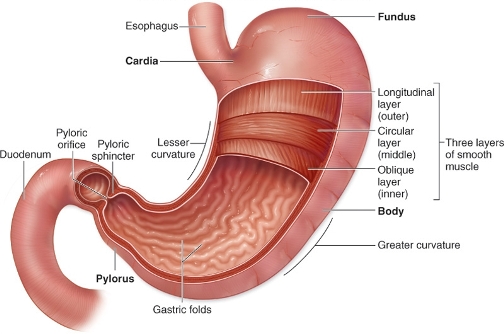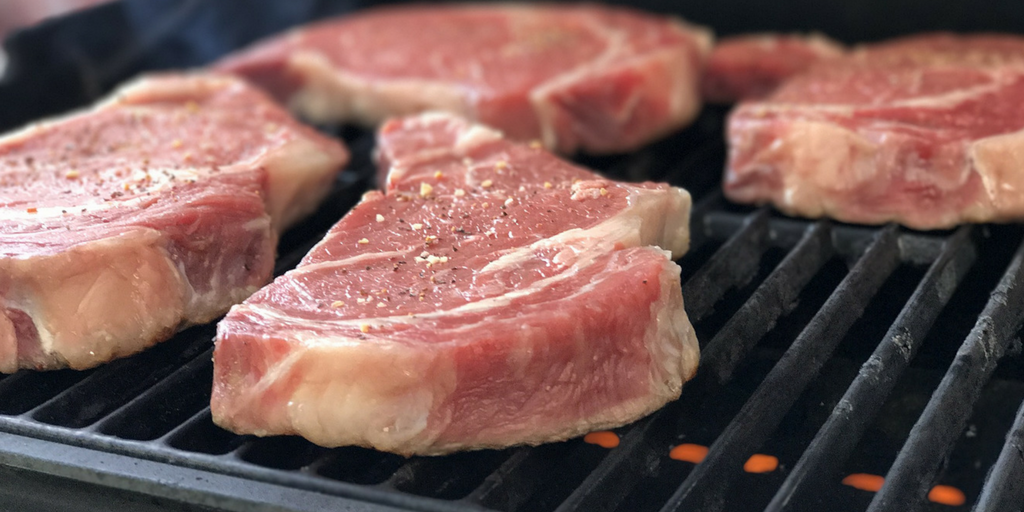Hypochlorhydria: 3 Common Signs of Low Stomach Acid

Hypochlorhydria, or low stomach acid, is a commonly overlooked problem that is linked to other diseases like stomach cancer, asthma and rheumatoid arthritis.
It’s a serious problem that needs to be investigated.
If you’re having symptoms such as acid reflux, heartburn, burping, gas, bloating, or nausea after eating, then it’s very likely that you have a stomach acid issue.
People diagnosed with gastrointestinal issues, especially inflammatory bowel diseases, Celiac Disease or IBS, are at a higher risk of having stomach acid problems. If you’ve made several diet and lifestyle changes and you’re still not seeing the results you want, low stomach acid might be holding you back.
How Low Stomach Acid Hurts You:
- Proper levels of stomach acid are needed to adequately absorb many nutrients, including minerals (iron, copper, zinc and calcium), vitamin B12, folic acid and proteins.
- Stomach acid is also a crucial part of the immune system. The acid barrier of the stomach during normal states of health easily and quickly kills bacteria and other bugs that enter the body. It also prevents bacteria in the intestines from migrating up and colonizing the stomach.
Appropriate stomach acid levels are crucial for our immune system and for adequate nutrient status, both of which support total health. Today, I wanted to shine a light on the three most common patterns of hypochlorhydria that we see.
(1) You Don’t Feel Good When You Eat Meat

A pattern is an observation linking several clues together, and this pattern is much more typical in women than men. So what’s going on here? I think it’s a two-part problem. The first is a physiological problem of low stomach acid. The second is a belief system that is created to cope with the symptoms of the physiological problem.
Here’s a typical scenario:
Mary is very in tune with her body. For as long as she can remember, she doesn’t like to eat red meat or large amounts of any meat. When pressed about it, she responds with “I just don’t like meat, never have. I don’t like how it makes me feel.”
I think she’s totally justified and validated in her feelings. I BELIEVE she feels bad, sluggish, or nauseous when she eats a large portion of meat. And the reason is that she doesn’t have the ability to digest it. She needs more stomach acid to properly break down the protein structures. And without it, red, white, or any kind of meat will probably make her feel worse than when she eats other types of foods that contain less protein.
If you’re someone who believes that you don’t like meat, I challenge you to test for low stomach acid, supplement with Betaine HCL, and regain your desire to eat meat again.
(2) You Experience Frequent Heartburn After Eating
This is an especially paradoxical pattern to experience. On one hand, you have stomach acid reaching unprotected areas of the esophagus causing burning pain. Then, if you take an antacid the pain usually goes away. Therefore, if A=B and B=C it is easy to make the jump to A=C. In this case, it’s easy to assume that high stomach acid levels cause heartburn or GERD. But that is simply untrue.
The modern media and drug marketing campaigns have brainwashed us to believe that acid reflux, or GERD, is due to high stomach acid levels. This is nothing more than propaganda from people who make money when you believe their message. In 2009, there were 110 million prescriptions filled for acid-suppressing drugs! Would Mother Nature create a situation in which almost 1 out of 3 people created too much acid to be healthy? I don’t think so.
I’ve talked about GERD/heartburn before but I want to give you a quick summary. A leading theory of GERD goes like this. Insufficient stomach acid leads to a host of conditions that encourage the increase in intra-abdominal pressure (IAP). When IAP increases, it pushes against the lower esophageal sphincter (LES). When the LES opens because of the pressure and even a microscopic amount of acid touches the inside of your esophagus it can produce large amounts of pain and burning. This is because the esophagus is not protected like the stomach from high acid levels.
As a former sufferer of heartburn and acid reflux, I know how painful and distracting it can be. Please know that no one needs to suffer from acid reflux or GERD.
(3) You Burp, Fart, or Get Bloated After Eating

After eating a meal, do you experience any of the following symptoms?
- Several burps shortly after finishing or burps later that taste and smell bad?
- Experience gas 1-2 hours after eating?
- Do you get bloated after eating that lasts for a few hours?
- A heavy feeling in your stomach – like your food just sits there fermenting?
If you’ve answered yes to any of those questions, it’s likely that you are suffering from low stomach acid levels. These symptoms are good indications that your digestion is suffering. I wish I could point to some conclusive models or studies on what’s happening but I can’t. Unfortunately, all we have to go on are observations and theories.
So, what are the theories? The likely situation is the food you ate is being fermented by bacteria and the byproduct of their feast is gas. If your acid levels are low enough and bacteria are surviving the stomach, most people will get repeated burps after eating. Sometimes, you might even burp several hours after eating and taste ruminations of your meal. This is a strong indicator that the food is still in your stomach when it should be in your small intestine. The pH levels aren’t low enough to begin dumping the food into the intestines.
Bloating and farting following a meal could be explained by several problems. One of these is bacterial overgrowth in the stomach or upper small intestine. Lower acid levels would contribute to this by allowing these bacteria to live in the stomach or upper intestine. There also could be a slowing of the speed of digestion, affording the bacteria longer access to the food.
I wish these problems were better understood. But what I can tell you is based on extensive self-experimentation and working with personal clients when someone reports any of the problems above, there is a high chance they have low stomach acid.
How to Rule Out Hypochlorhydria (It’s Cheap)
I know you care about your health, otherwise, you wouldn’t be reading this.
That’s why I want to urge you to test for low stomach acid. It is cheap and easy to get a good indication if you need to invest further into this potential health problem.
Therefore, I think it’s a no-brainer to rule it in or out if you’re trying to take care of your health. You can also purchase a bottle of Betaine HCl and test it for 5-7 days to see how you feel.
How to choose the right Betaine HCl
When choosing a Betaine HCL supplement it’s important to choose one that includes pepsin. It’s assumed by the medical research that when supplementing with HCL you need to supplement with pepsin.
That is why most Betaine HCL supplements you’ll find include it and Dr. Wright recommends it.
If you’re anything like me, you’ve tried a lot of supplements that have loads of promise but fall short on actual results.
And here at HealthyGut, we’re committed to only bringing things that actually work – reliable, proven, and verified by you.
That’s why I’m so happy to share our newest Betaine HCl digestive supplement.
While I knew the science, there was nothing else like it on the market. It’s the first of it’s kind.
It’s based on “Advanced BioMimicking Stomach Support”™. Which is something I asked many supplement companies to make over the years… and they just refused.
So we built it ourselves.
Now the test results are in and I’m confident it works. That’s why it’s backed by a 180-day guarantee.
Now it’s time for you to find out for yourself.
Introducing: Healthy Gut HCl Guard+
The Only stomach acid supplement built with “Advanced BioMimicking Stomach Support”™

The newest digestive support product on the market. This works especially well for those who struggle with:
- Heavy or fullness after eating
- Trouble digesting meat
- Burping
- Gas
- SIBO
- Candida
- Constipation
- And straining during bowel movements
If you’re looking for a Betaine HCl supplement to test, I’d be honored for you to try ours. We have a full 180-day guarantee, so if you’re not happy with it, we’ll refund your purchase.
– Steven
Did You Like this Article?
Subscribe to our newsletter to receive email notifications, some ways to find relief, and next steps.
